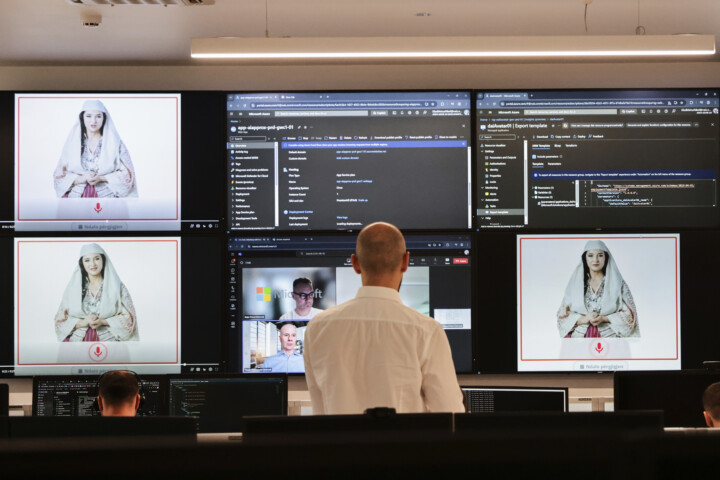A learning pod is making front-page news in Niagara Falls, Ontario after the Toronto Star broke the “unique situation”, reporting health and safety concerns about masks and social distancing. But what the coverage masks is the real story, so let’s skip past pandemic politics and get straight to education policy.
A spokeswoman for Ontario’s minister of education said, “50 kids congregating in a building—that’s not homeschooling, that’s private schooling.” And now, the province is threatening learning pod organizers with a $250,000 fine and jail time over their activities.
This is wrong. And, more critically, the ministerial spokesperson’s false assertion about “private schooling” exposes deeper issues.
For starters, learning pods are not schools. They fail the Education Act’s definition. Mind you, that’s easy to do. The Act explicitly states that even Ontario’s “private schools” are not schools. In fact, few seem to realize that with the notable exception of COVID policies, Ontario’s independent schools operate in a regulatory vacuum. The provincial government treats them like businesses (even though almost all these schools are charities or non-profits). But, this vacuum requires registration! Not registered and on the list? Not a private school. So, it’s pretty safe to say: learning pods aren’t schools.
And they don’t need to be!
The Education Act states, “a person is excused from attendance at school if…the person is receiving satisfactory instruction at home or elsewhere,” (emphasis added). The Act conveniently neither defines “satisfactory instruction” nor identifies who determines this definition.
For at least 40 years, both the academic literature and legal interpretations have never understood homeschooling to only be at home and only with kids of a single family. Homeschoolers often gather together to share expertise (one parent might be an expert at science, another an artist), to socialize, do field trips together, and even create sports teams. Yet, the activities homeschoolers do in groups are not private schooling.
Now that that’s settled, let’s get away from the one anecdote in Niagara. When we look at the whole province, what’s the reality on the ground?
Innovation is happening.
Like so many other issues, the public’s needs are far more diverse than most consider. Learning pods—along with other new K-12 structures, like the 60 new microschools and 111 new hybrid schools in Ontario—have emerged to meet the unmet needs of children and families. They are innovations borne out of real life. It is in everyone’s best interest for the government to acknowledge and respect this fact (and the families involved) and work from the assumption that those needs are real. In a free society like Ontario, public policy should be responsive to people’s needs, not the other way around.
Parents, frustrated from a lack of teaching and learning, decided not to wait around indefinitely for their taxpayer-funded schools to get in gear. Learning-pod parents aren’t starting new schools. (I imagine few have even had such a thought cross their minds.) Parents simply want what’s best for their kids. And that means ensuring they get an education. If that involves getting a few families in the neighbourhood together to coordinate joint activities and learning opportunities, more power to them. Why would we not celebrate that?
Why would we want to crush creative educational models and squeeze new approaches into outdated policy boxes? Our impulse should be to embrace creativity and ingenuity in education, especially when it solves real problems at no public expense, and not reactively shutdown innovation when it progresses beyond our unimaginatively rigid regulatory structures.
This requires a fresh perspective. Contrary to the factory model on which Ontario’s industrial-scale, uniformist school system is conceived, children are not blank slates or raw materials. Each child is unique and, like the different plants in a garden, requires a diverse and varied combination of soil, water, sunlight, temperature, and nutrients to thrive.
Learning pods are just one of potentially thousands of different types of “gardens”, where kids can flourish. Is that not a good thing? Why wouldn’t the government encourage as many diverse and successful educational models to bloom as possible?
Why should real-time innovators be expected to offer certainty and perfection, while the inadequate status quo is only expected to offer good intentions?
Whether it’s learning pods, homeschool co-ops, or something completely different like microschools or hybrid schools, our policy framework should allow—and optimize for—self-organizing communities to spontaneously and organically respond to real needs in real time. This is what learning pods do and why they exist.
Recommended for You

The autonomy trap: Why AI’s ‘chain of command’ still needs humans

Coalition conservatism requires comfort with contradiction and debate

The myth of unified Indigenous opposition to a West Coast pipeline

The Thomas King saga proves Canada’s cultural establishment must end its identity obsession once and for all



Comments (0)